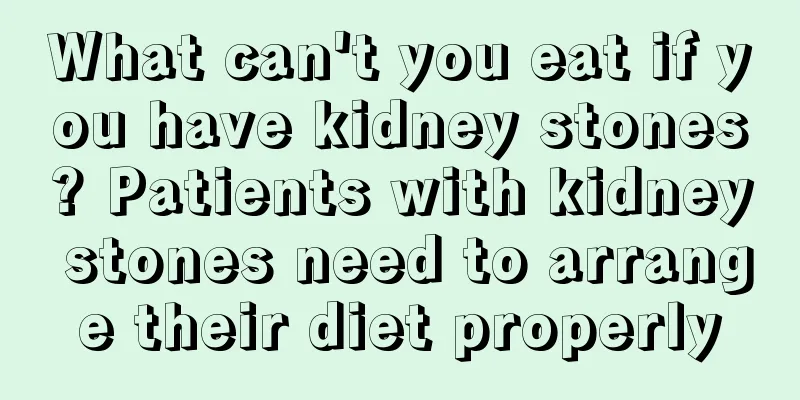What are the symptoms of intestinal polyps

|
In today's society, many people live with diseases. Because the rhythm of life is disordered, the irregular life of many people gives rise to many diseases. Gastrointestinal diseases are the most common diseases in life. The fast pace of life now makes many people just deal with diet, which is the primary cause of intestinal diseases. So, what are the symptoms of intestinal polyps? First, what are the symptoms of intestinal polyps? Generally speaking, for intestinal polyps, if the polyps are small and not numerous, there are usually no obvious symptoms in the early stages. However, a small number of patients may experience some symptoms, mainly manifested in the following three symptoms: blood in the stool. If it is a colon polyp, it is most likely to have blood in the stool. When blood in the stool occurs, many patients will think it is hemorrhoids, and thus fail to take timely prevention and treatment, which may bring greater harm. In fact, the symptoms of blood in the stool of hemorrhoids and intestinal polyps are different. The blood in the stool caused by hemorrhoids is mostly dripping after defecation, and the blood is bright red. It does not usually bleed, but for the bleeding caused by colon polyps, it is often mixed in the stool. Second, changes in bowel habits. When suffering from intestinal polyps, patients may experience changes in the time and frequency of bowel movements, or symptoms such as constipation and unexplained diarrhea. Especially if constipation and diarrhea occur alternately or are accompanied by abdominal pain, then you should pay attention, as you may have intestinal polyps and you should see a doctor in time for a diagnosis. Changes in stool shape. For normal and healthy people, stool should be cylindrical. However, if there are polyps in the colon cavity, they can compress the stool, causing the stool to become thinner or flat, and some may even have blood stains. What are the symptoms of intestinal polyps? This situation is relatively rare in patients with colon polyps. Generally speaking, it occurs in patients with more severe colon polyps. Larger polyps can cause intussusception, resulting in intestinal obstruction and abdominal pain. When polyps are large or numerous, gravity pulls on the intestinal mucosa, causing it to gradually separate from the muscle layer and prolapse downward. The traction caused by the patient's defecation movement and the stimulation of intestinal peristalsis can relax the mucosal layer around the base of the rectum, which may lead to rectal prolapse. When intestinal peristalsis pulls on the polyps, intestinal irritation symptoms may occur, such as abdominal discomfort, abdominal pain, diarrhea, bloody stools, tenesmus, etc. |
<<: What are the symptoms of muscle tension?
>>: What are the symptoms of muscle tear
Recommend
Is it okay to boil mineral water repeatedly?
Water is essential to sustain life. Drinking wate...
Is chemotherapy needed after bladder cancer surgery?
Is chemotherapy required after bladder cancer sur...
What are the symptoms and treatments of lumbar disc herniation and spinal stenosis?
The most obvious symptom of lumbar disc herniatio...
Will mid- to late-stage gastric cancer cause ascites?
The cause of ascites in the late stage of gastric...
What are the treatment methods for liver cancer? The three most effective treatments for liver cancer
There are many treatments for liver cancer. Curre...
What is the bone marrow transplant process like?
Bone marrow transplantation is highly recommended...
Is ginger a food that causes allergies?
Ginger is a very common food in our daily life. G...
What are the effects of dried mussels
Mussels are a kind of seafood. People will feel t...
Why are we prone to tension and anxiety
Many people are prone to tension and anxiety. The...
The hazards of ct enhanced scanning
Enhanced scanning is a scan of the blood. Before ...
How to maintain a marriage
There are too many unhappy marriages in today'...
Treatment principles and methods of gallbladder cancer
The treatment principles of gallbladder cancer ar...
What are the dangers of endometrial cancer? There are 3 dangers
Endometrial cancer is a cancer of the endometrium...
Smoking is the main cause of lung cancer
The causes of lung cancer are complex, but the mo...
How to make a chicken feather shuttlecock
Everyone likes to play chicken feather shuttlecoc...









